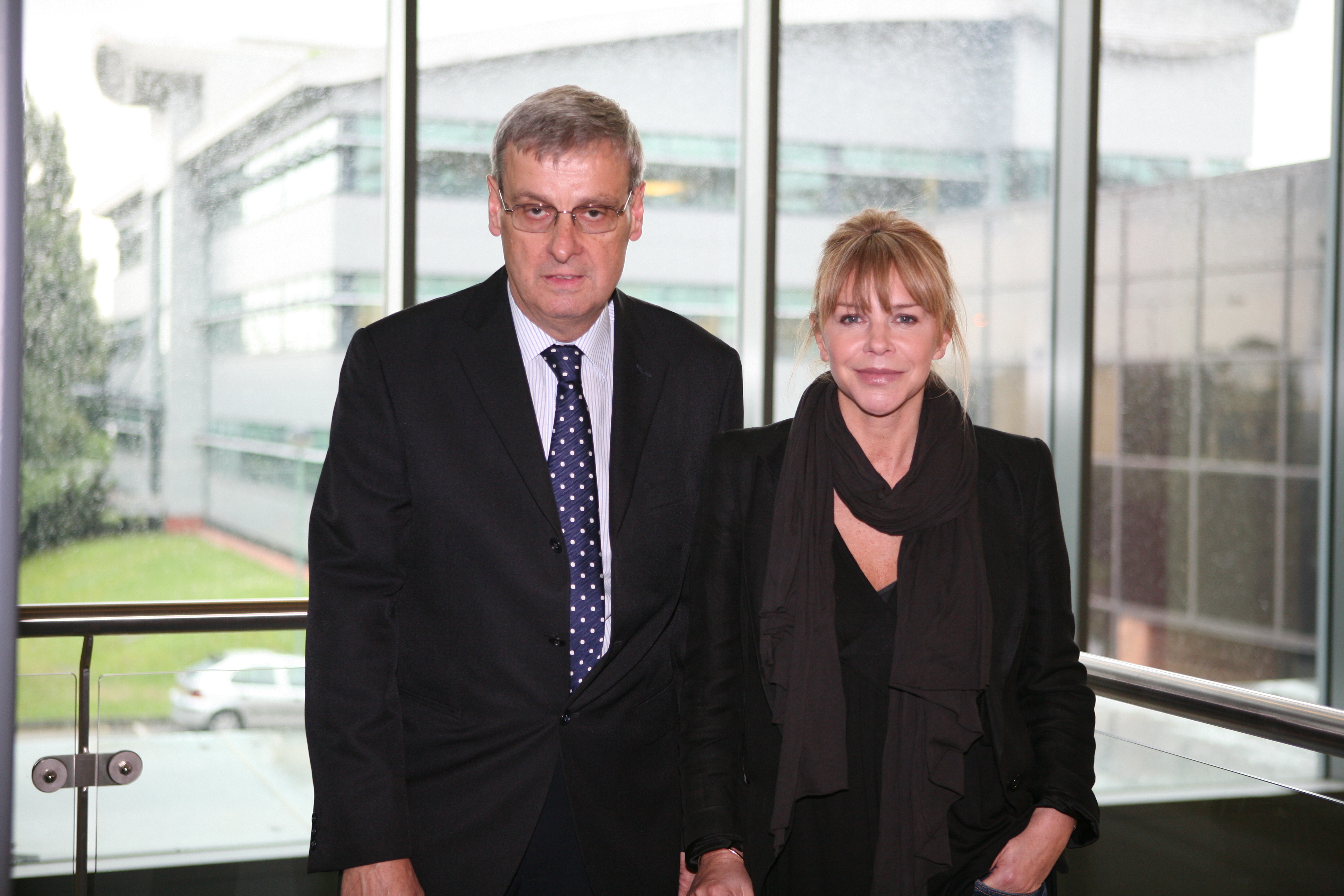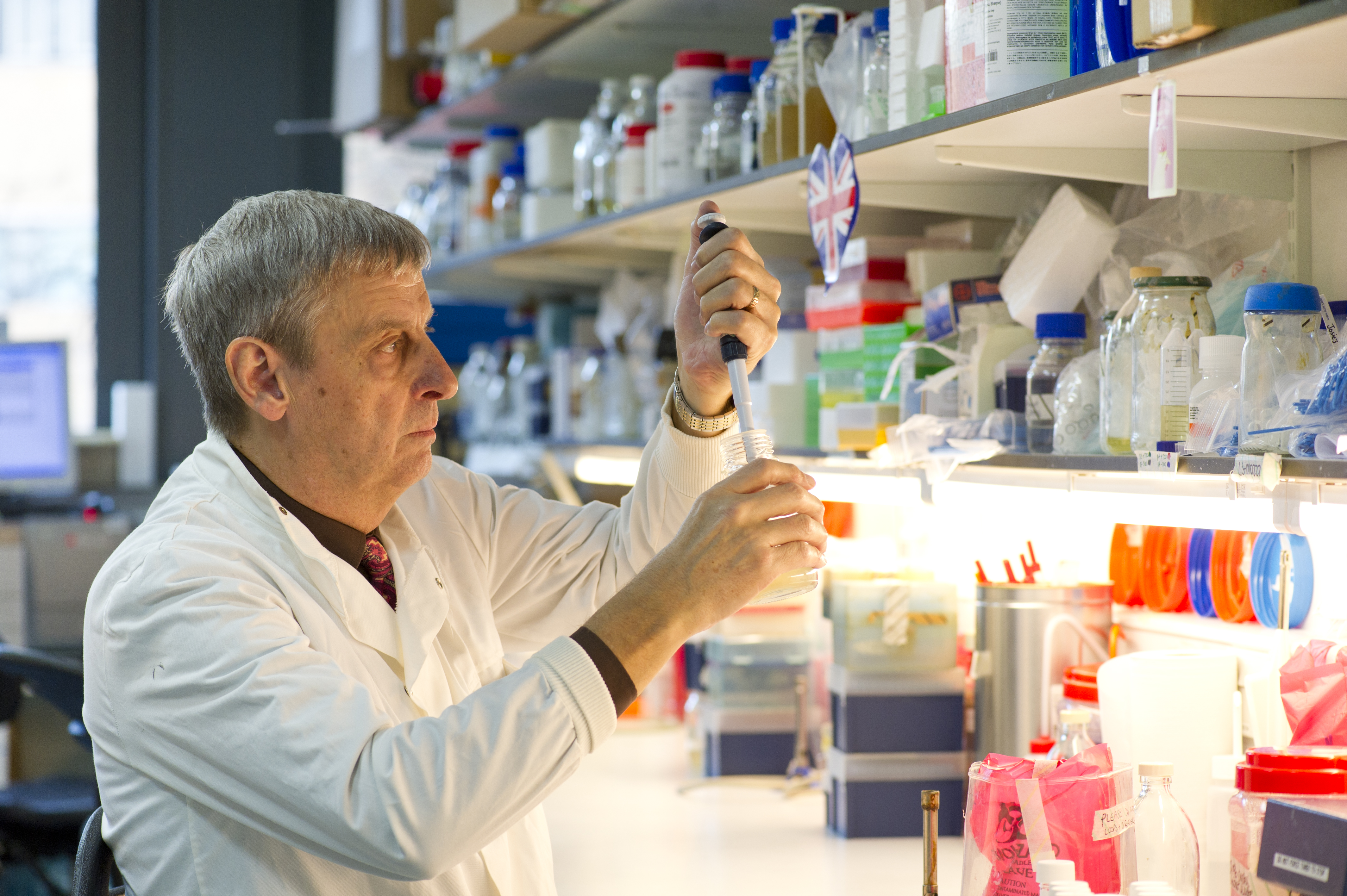
January 8, 2013, by Emma Thorne
Superbug ‘apocalypse’ professor retires
A Nottingham professor who has spoken publicly on the threat posed by antibiotic-resistant bacteria and influenced public policy on the fight against hospital superbugs has retired from the University.
Heading up The University of Nottingham’s Centre for Healthcare Acquired Infections (CHAI), Professor James has dedicated his 12 years here to the study and fight against so-called superbugs such as Methicillin Resistant Staphyloccocus aureus (MRSA) and Clostridium difficile (C.diff), which in recent years have killed thousands of hospital patients and have now begun to colonise many of our communities.
His time at Nottingham has seen him court controversy over his bleak predictions of superbug pandemics, stand accused of sensationalising the issue by the Government and eventually see the introduction of many of the measures for tackling hospital infections that he has been championing.
Ruffling feathers at the highest level
Professor James spent 25 years at UEA developing our understanding of the kill mechanism used by proteins called colicins which are produced by bacteria to kill closely related species, before joining Nottingham in 2000 at the height of the MRSA epidemic plaguing Britain’s hospitals.
CHAI was launched in February 2007 amid a flurry of national and international media interest, sparked in part by its choice of patron, actress Leslie Ash who was left with ongoing health problems after contracting a strain of Methicillin Sensitive Staphyloccocus aureus (MSSA) MRSA in 2004 following hospital treatment for cracked ribs.
His outspokenness on the issue of hospital infections ruffled feathers at the very highest level of government — on the day that CHAI launched the Chief Nursing Officer at the Department of Health issued a press release condemning his comments in the media.
Professor James said: “To be accused of being a sensationalist and scaremonger on the launch day was interesting — my first thought was don’t shoot the messenger. Later I was told by an insider that CHAI had been discussed at a cabinet meeting and, because of Leslie Ash’s high profile in the media, the Department of Health was considering pulling all its guests from the launch event.”
National recognition
Shortly afterwards in 2008, Professor James was awarded the Society for Applied Microbiology Communications award for raising the profile of the problem of HAIs and antibiotic resistance to the wider public.
He was also invited to write an article — Battling the Bug — for the House of Commons magazine House, in which he outlined the key elements of an integrated strategy to tackle hospital acquired infections, which included screening of all hospital admissions for MRSA, monitoring infection rates in individual wards, the introduction of effective measures to increase staff hand hygiene and improved staff training and involvement on infection control. Almost all of these recommendations have since been put into place by the Department of Health.
Professor James’ expertise has led him to be invited to sit on numerous regional, national and international committees including the Research and Development subgroup of the Department of Health Committee on Antimicrobial Resistance and Healthcare Associated Infections and the Assessment Panel of the Technology Strategy Board Detection and Identification of Infectious Agents programme.
Research into antibiotic resistant microbes will continue at CHAI under the guidance of a new director, yet to be announced. Although retiring from Nottingham — where he cites serving as Head of School for 6 years and Director of the Centre for Biomolecular Sciences as career highlights — Professor James will continue his private consultancy work as an expert witness in infection-related court cases and may return to CHAI in a part-time capacity for a short time next year.
Plans for the future
His retirement plans could also include writing a book on the rise of hospital infections in the NHS. He added: “I’ve always wanted to write a book on the issue — the initial problems of misplaced optimism and the politics behind it, the increased through-put of patients to tackle hospital waiting lists was not conducive to effective infection control. But mostly why was it allowed to continue unchecked on our hospital wards for so long?”
Professor James was given a farewell send-off by colleagues in the Centre for Biomolecular Sciences at the new Orchard Hotel on University Park campus in December — complete with microbial themed cupcakes.
He is planning to take some time relaxing with family and indulging his love of travelling with his wife Lynne, with whom he celebrated 40 years of marriage in 2012. The couple were due to jet off for a short break to the Bahamas in January — a warm up to a scheduled around the world trip starting in March, taking in 29,000 miles and three continents in 42 days.

Any pics available of the microbial-themed cupcakes? Happy retirement Prof James…
Sadly not – although I saw them for myself and they looked delicious. Gross, but delicious!